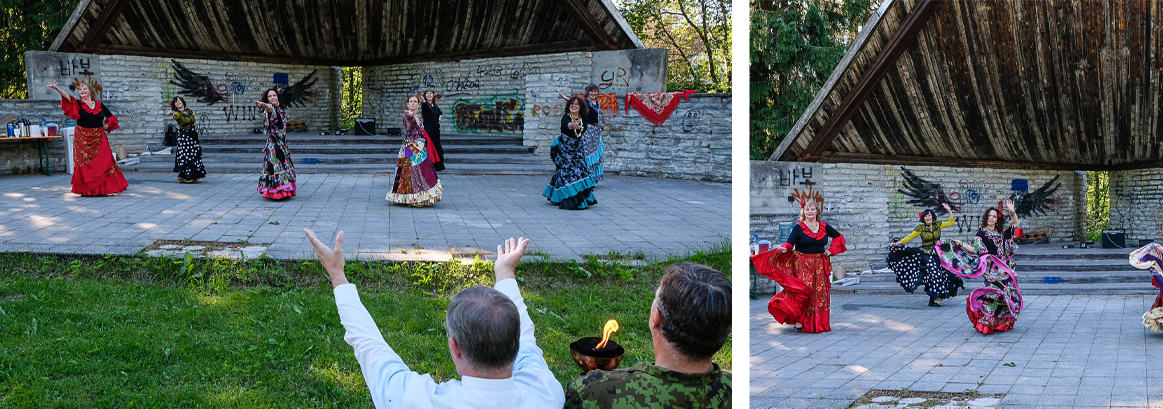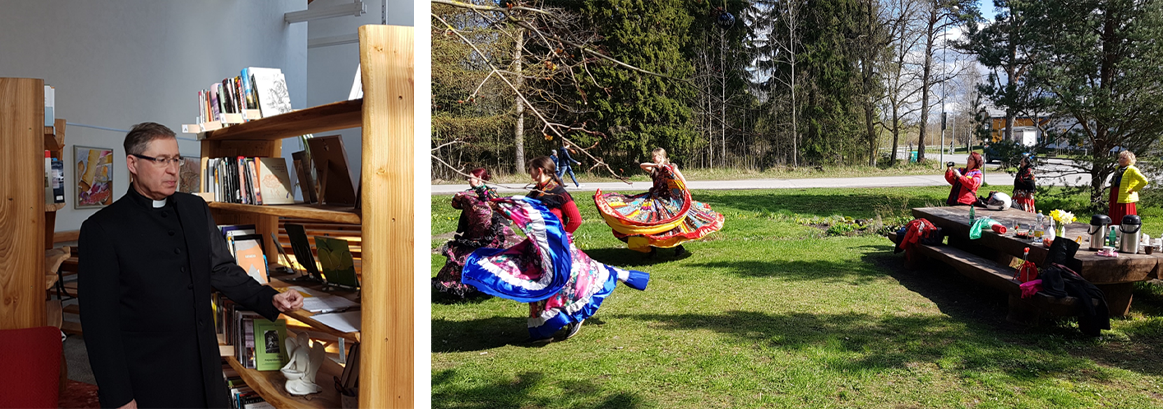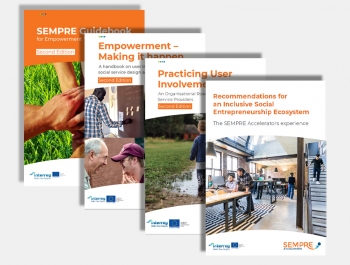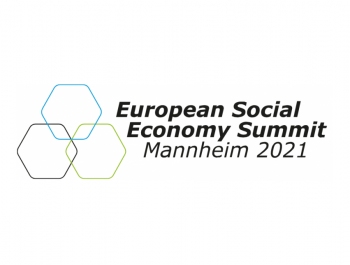Location: Harkujärve, Estonia
Coordination: Estonian Evangelical Lutheran Church
|
Social Start-Up Biography On this page we want to document the Harkujärve Community Centre and its development into an independent social start-up. To take you with us on this journey, we update this interview diary every other month. If you have further questions, feel free to contact the local coordinator (see above). If you want to learn more about certain terms you may encounter here (such as "micro project", "social start-up", "Accelerator Team" and the like) please check our "the ideas behind the project" section. |
| Choose your issue of the Harkujärve Community Centre biography: DEC 2019 FEB 2020 APR 2020 JUN 2020 AUG 2020 OCT 2020 DEC 2020 FEB 2021 APR 2021 |
|
Tell us about your Micro Project in three sentences! Our goal in Harkujärve is to develop the church into a community centre, into a stable social enterprise. This is the "roof", this is our micro project in SEMPRE Accelerators. Under this roof, we aim at developing and stabilising several activities, such as the work with ex-offenders or the setup of a library. These services should help to sustain our community centre. Who are the persons behind the initiative? The project builds upon the joint effort of three groups, Firstly, there are core members of our church. Secondly, committed "end-users" play an essential role, i.e. individuals representing the local congregation. They are in particular involved in the different services that our social enterprise should offer. Thirdly, we engage experts whenever specific expertise is needed. What are your long-term goals? Our primary goal is, of course, to develop the community centre into a social enterprise: our final vision is to establish the organisation as a new legal entity that unites old and new services under its roof. This process should be driven by service users, i.e. members of our congregation. Together, we are working on the following challenges during SEMPRE Accelerators: (1) How to engage more people into the everyday activities at the community centre?, (2) How to improve the funding situation for our projects from a strategic perspective?, and, (3) How to increase the involvement of the local community to ensure that the process is actually driven and "owned" by the community.
Which topics do you currently address in your micro project? In January, we further worked on our vision of developing a legal entity. In practice, this means that we identified and discussed possible fields of activities and services of the community centre, potential organisational structures as well as management and leadership models. When it comes to the individual services that should be delivered by the social enterprise, we reached a significant milestone with the opening of TEEVIK, a tea room attached to our reading room. Many community members expressed their interest in such an offer and contributed in several ways – be it through making furniture or as volunteers who keep the service up-and-running. What were your recent challenges? One of our challenges in the work with the community members who want to co-create the new community centre with us is that we sometimes still struggle at translating their enthusiasm into concrete activities. We are thrilled to see so much support and commitment on the end-user side, yet when it comes to assigning specific responsibilities and actually committing to these responsibilities, we still need to improve our joint work. What are your short-term goals for the next months? In the coming weeks and months, we want to focus on questions of financial stability, and we want to stabilise the newly established services of our future community centre – in particular TEEVIK. The issue of income has been addressed at our January meeting. We discussed our own training needs in this regard and agreed on further developing and concretising our plans.
All over Europe we are faced by the tremendous impact of the COVID-19 pandemic on our daily life. What were your recent achievements before the pandemic spread? We were making good progress towards our goals of an improved organisational setup. For instance, we managed to concretise our plans for registering a new legal entity. We expect to have the registration finally approved at some point around autumn, no later than November 2020. Moreover, we worked on our short-term goals as outlined during our last interview – namely stabilising TEEVIK and developing ideas for financial sustainability. We had achieved to connect with us new active leaders of the services, previous end-users. Regarding TEEVIK, we were, for example, planning a training course to improve our own skills in market research. This training was scheduled for April or May, and unfortunately it had to be cancelled due to the pandemic – like so many of our other activities. In how far does the pandemic influence the work in your Accelerator Team? Estonia, like almost all other parts of Europe, is basically locked down. On 12 March, all gatherings were prohibited and leaving ones' home is not allowed without a good reason. Our community church remains open and we try to work as good as we can. One of the main challenges that we want to address is how to involve new community members under those conditions and keep the existing ones. Fortunately, Estonia is very well developed in terms of IT, even to the elderly the computer world is not unfamiliar. At the moment, we are testing different platforms for virtual meetings. The small initiative group is learning and teaching others how to use the platforms. Everything related to structural and organisational questions has to be discussed via IT at the moment. Unfortunately, we cannot meet stakeholders or representatives of ministries and authorities face-to-face, yet this would be essential to keep their interest and advance our long-term strategic goals. We try to continue digitally as much as possible – luckily, all members of the Accelerator Team have computer access, unlike in some of the other SEMPRE Accelerators start-ups. Despite the unfavourable situation, we see this also as a chance to improve our IT skills and integrate them into our work once the pandemic is over. We want to make up for some of the trainings and courses through webinars, but not all issues can be covered digitally. What about the services offered by your social start-up during this situation? One very big issue is how to help families with children with severe disabilities, which is one of the services offered by our community centre. We had many discussions with parents, caretakers and decision-makers. In many cases, the pandemic forces parents to stay at home. However, they still need a bit of "breathing time ". This is why we decided to continue our caretaking services at the children's homes in a way as good and safe as possible.The situation with our services for (ex-)offenders is different now: before the pandemic, the starting points of our work were visits to prisons or shelters, with pastoral counselling and visits of support persons. Now, these services continue via phone only. Still, our support persons meet inmates at the prison gates when they get released.
During our last interview you told us about the different services of your social start-up during these times of crisis. How did the situation develop in the meantime? Apart from our services for (ex-)offenders and children with disabilities, about which we talked in the previous interview, the general situation is now that our church doors are open six days a week and it is possible to organise face to face meetings again, following certain hygienic rules. The reading room (which you can see on one of the pictures below) is open again, books can be exchanged without physical contact. Our pastoral coounseling is ongoing, which is ever more important during these difficult times. A local elderly home saw a COVID-19 case and the need for counseling was high, also for relatives of the inhabitants. In general, we try to see the situation as an opportunity and train people to be actively involved with the help of IT. All these services are united under the roof of the community centre that you co-create with the local community. How is the progress here? One of our main tasks at the moment is to keep contacts and not to lose the people that contribute to the creation of the community centre. Thus, the members of the Accelerator Team are looking for opportunities to translate the life of the community centre into the virtual world. Many of our volunteers are active on Facebook and participate in local news groups. Our aim is to become a virtual centre as long as these insecure times continue. In the future, once everything is „back to normal“, we might keep these structures and have an integrated virtual and physical community centre.
Moreover, we started working out the statute of the future community centre and we used the time of quarantine to start working on a business model canvas, which should help us securing the financial stability of the centre.
First things first: What is the current status with the establishment of your social enterprise? On 05 July, we reached a very important milestone: Harkujärve Community Centre was officially registered as a social enterprise! This is a big step, and now we look forward to filling this framework with life. Congratulations! Let us look back: Which were the structural issues that you worked on during the past months, on the way towards this crucial milestone? Most importantly, we conducted a training on strategic planning. All members of our Accelerator Team and sub groups participated and together we analysed the status quo of the community centre (i.e. the social enterprise that we just registered). We clustered the discussion into five strategy planning components: key partners (like authorities, NGOs, entrepreneurs or the local community), key activities (such as fundraising), value propostions (meaning the services and products that we can offer), client relationships (referring to community involvement and inclusion) and specific target groups. We furthermore analysed key resources and the cost structure of the future community centre. A core idea of SEMPRE Accelerators is the involvement of service users in the co-design of social services. In how far did they contribute to this process? Next to the training session we just talked about, we had a second session in which the sub groups of our Accelerator Team were in the focus. These sub groups are each dedicated to a particular service or activity that should be offered under the roof of the community centre.
September was a big month for Harkujärve Community Church. Tell us why! In September, we celebrated the 110th birthday of Aino Järvesoo. She was an ethnographer, artist, home decorator and the biggest private donator in Estonia, who dedicated her energy and financial resources to families with children. Harkujärve church, the home of our community centre, is a gift from her – she wanted this to be a Lutheran church for families and children. Some of the locals helped with the construction of the church, some received help from her if they wanted to continue their studies. Without an exception, everybody remembers her as a lady – never minding to carry construction materials, doing morning runs, or planting bushes. In 1944, having earned two diplomas, she fled from Soviet ocupation and worked as an art professor at Massachusetts University. After re-independence she came back to Estonia. Being 80 years old, she started to build and donated the Harkujärve church. Aino’s wish was that the church becomes a place for children and families, full of merry activities where children feel comfortable and safe. Aino could not have children of her own, but through her donations, 153 children could be born. Today, everyone can admire her coloful paintings at the walls of Harkujärve Church, a place that offers care for children with disabilities, a place that hosts studios in the basement, has guest rooms and heavy oak-tree shelves carrying 5.000 books, and a place that is open to everyone to attend concerts or have tea in the tea room TEEVIK. On 27 September, there was a conference and memorial service in honour of her, to which the Accelerator Team and its sub groups contributed. On this day, a new bas-relief of her, created by the sculptor Tõnis Paberet, was unveiled.
Your social enterprise has been established already in July. What are your goals for the next time? As we have achieved the task of registering Harkujärve Community Centre as a social enterprise, now the goal is to keep it sustainable. Sustainability at this specific moment means people and finances: to get and keep them both, we have to sustain our ongoing activities, such as the children drama club, gypsy dancing or the work with ex-offenders and with differently abled children, to name but a few – while always having in mind the need for a stable income through rent, participation fees, donations and fees for services. In one sentence, it is about filling this new structural framework with life. How did this „life“ look like throughout the past months? On of our new activities worth mentioning is that we opened a cooking class for children. The use of the newly-restored kitchen in Harkujärve Community Centre was topic that we discussed over and over again – and now we are glad that we had the opportunity to have a first regular use. Once a week there is a cooking class with children, which is organised by a community member who is a teacher at a local school. Next to this weekly offer, once a month we have a family day, when children cook to their families and friends. One of these events was dedicated to baking bread – a deep-rooted tradition in Estonia. Another recent achievement comes from one of the sub-groups of our Accelerator Team. The group supports and mentors people who need help to “get on their feet again”. One of the success stories from this group is about a family that managed to establish a carpenter studio and word processing thanks to the help of our mentors.
In SEMPRE Accelerators, all micro projects organise a so-called “micro project breakfast” as a means to bring social service providers and social service users closer together and allow for mutual exchange in an informal setting. Your micro project breakfast has been organised this February? Indeed! We gathered with micro project members, our facilitator, and the Estonian Evangelical Lutheran Church as well as other NGOs as service providers – 12 participants in total. We started the meeting with several presentations, most notably about the different services offered by the Harkujärve Community Center. But we also had interesting discussions and room for social networking. What was your most important takeaway from the discussion? We discussed several options for future collaboration between the micro project and other NGOs, for example with “The New Hope”, which is an NGO working in the field of rehabilitation. Having an informal setting that is not constrained by meeting agendas and a strict timeframe has proven very beneficial for this exchange.
Welcome to our last interview! It is time for a final wrap-up. What was your most important achievement in one and a half years of SEMPRE Accelerators? Harkujärve Community Centre developed into a social enterprise. With the social enterprise, we now have a stable organisational setup that allows us extending our community services. Why is this new setup important for you? The challenge was, and partially still remains, to extend the range of services offered by the community centre, als well as the quality of these services. This includes leisure time activities, different clubs, child care, concerts, festivals and further community services for the region. Additionally, we provide certain services not just in the region, but all over Estonia. This includes, for example, our work with ex-offenders and other vulnerable groups. Having Harkujärve Community Centre as a social enterprise allows us to unite all these activities under one formal „roof“. |





